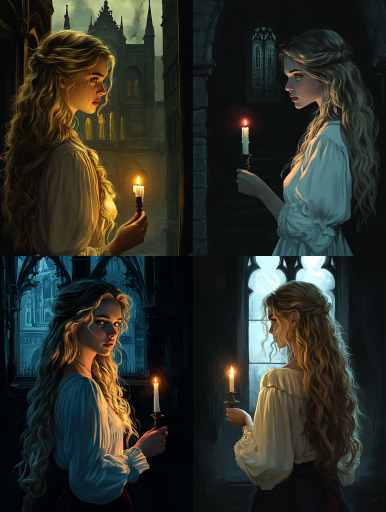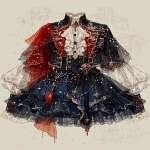Explore the Best AI Image Gallery

Quantum Computing: A New Frontier for Creative Industries
As quantum computing continues to evolve, its implications extend well beyond traditional fields like finance or logistics. One increasingly promising arena for quantum technology is the creative industry. From digital art and design to film, music, and interactive experiences, quantum computing offers the potential to revolutionize how creatives harness technology in their work.
The Basics of Quantum Computing
Before delving into the impact of quantum computing on creativity, it is essential to understand its fundamental principles. Unlike classical computing, which uses bits as the smallest unit of data (binary states of 0 or 1), quantum computing uses qubits. Due to the principles of superposition and entanglement, qubits can exist in multiple states simultaneously, allowing quantum computers to process vast amounts of data at unprecedented speeds.
Creative Applications
The creative applications of quantum computing are diverse and seem limitless:
- Generative Design: Leveraging quantum algorithms, designers can explore an array of design options and solutions, achieving results that classical computers simply cannot provide. This could lead to better architectural designs or more innovative product development.
- Music Composition: Quantum models can analyze complex patterns in musical compositions, enabling composers to create rich, intricate pieces. This could lead to entirely new genres or styles of music that blend human creativity with machine efficiency.
- Film and Animation: Quantum computing can significantly accelerate rendering times for CGI and visual effects in the film industry. By processing complex algorithms more effectively, filmmakers could experiment with cutting-edge visual styles without the lengthy delays traditionally associated with high-quality rendering.
- Interactive Experiences: In the domain of virtual and augmented reality, quantum computing can help streamline the rendering of immersive environments, enhancing user interactivity and engagement.
Ethical Considerations
While the potential is immense, the ethical implications of integrating quantum computing into the creative sphere are equally significant. Here are a few key considerations:
- Accessibility: As quantum technology is still in its infancy, access to quantum computing resources is limited. This could pose challenges for smaller studios or independent artists, leaving them at a disadvantage compared to larger companies that possess the means to invest in advanced technologies.
- Intellectual Property: The capacity of quantum algorithms to generate new designs or compositions raises questions about ownership and originality in creative works. What happens when an artwork or music piece is conceived through a quantum algorithm? Determining authorship will become ever more complex.
- Human Creativity vs. Machine Efficiency: As quantum computing begins to handle more tasks traditionally done by human creators, it leads to a philosophical quandary--where does human creativity end, and machine creativity begin? Balancing the advantages of efficiency with the irreplaceable touch of human artistry is crucial.
Future Trends
Looking ahead, several trends could shape the intersection of quantum computing and creativity:
- Quantum Art Platforms: As more artists recognize the potential of quantum computing, we may see the emergence of platforms that specialize in quantum art, connecting artists with quantum resources and collaboration networks.
- Cross-disciplinary Collaborations: Traditional artists may collaborate closely with quantum physicists and computer scientists to explore new frontiers of creative expression, creating hybrid projects that fuse art with advanced technology.
- AI and Quantum Synergy: Combining quantum computing with artificial intelligence may yield even more transformative tools for creators, automatically generating designs or compositions informed by vast data sets.
Conclusion
As quantum computing continues to advance, its influence on the creative industry will likely deepen. While the opportunities are thrilling, it's essential to remain mindful of the accompanying ethical considerations. Striking a balance between harnessing the power of quantum technology and preserving the essence of human creativity will define this next frontier.

















































